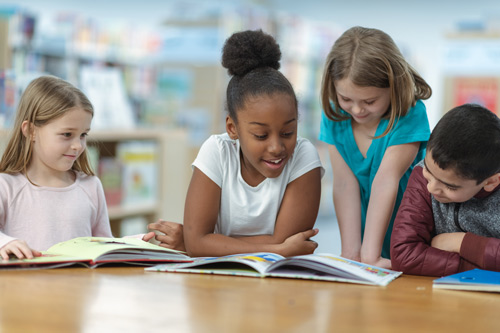
As a young child, our daughter loved a book entitled I'm a Great Big Tow Truck. Fifteen years have passed, but I can still repeat much of the book verbatim: “I am a great big tow truck and I like to help people. . .” Great literature? No. Jewish in content? Not explicitly. Yet the book did convey positive values and was a jumping off point to talk about values like chesed, or kindness.
Many children's books that are not written specifically for a Jewish audience can actually be framed in a Jewish context. Recently, the American Library Association announced the year's most prestigious children's book awards - the Caldecott, the Newbery, the Sydney Taylor, the Coretta Scott King and others. It got me thinking about beloved children's books, the values they contain, and how reading them can incorporate Jewish wisdom.
Here are some of my favorite books that lend themselves to Jewish discussion:
Change Sings
by Amanda Gorman, illustrated by Loren Long
Written by the inaugural poet Amanda Gorman, Change Sings both contains a message of tikkun olam, or healing the word, and includes Jewish representation. In the book, a diverse group of children go out on a musical journey to make positive changes to the world around them. A young boy, wearing a kippah, appears throughout. Although his Judaism isn't discussed, his presence organically makes the book inclusive and affirming.
With very few words but beautiful illustrations, master artist Kadir Nelson shares a tale about Rodef Shalom, seeking peace through generousity and kindness. A rabbit and mouse plant a garden and delight in its vegetables but don't want to share their crop with other animals. This “seed of selfishness” leads to a fight and the garden's near destruction. But, when the rabbit and mouse are generous, the garden flourishes, and they make new friends. It is a great book for talking about the consequences of actions and how kindness inspires kindness.
A unicorn named Kelp is born into a loving family of narwhals. He loves his family but also recognizes his differences. When Kelp meets a herd of unicorns, he better understands the complexity of his identity and feels warmly accepted by both the unicorns and narwhals. Building self-esteem and self-confidence, Kelp's story emphasizes the Jewish teaching of Adam Yehidi Nivra, “every person is a unique creation.” The book is perfect for affirming diversity, inclusion, and uniqueness of each child.
Strictly No Elephants
by Lisa Mantchev, illustrated by Taeeun Yoo
When a little boy and his adorable small elephant are banned for participating in a local pet club, he and other children with unusual pets form their own club open to everybody. The book implicitly teaches about acceptance and diversity and serves as a gentle introduction to confronting antisemitism and racism. The story contains a message of lomed mikol Adam, learning from everybody.
The Tin Forest
by Helen Ward, illustrated by Wayne Anderson
In this gorgeously illustrated, lyrical book, an old man lives in a desolate junk yard but has creativity and hope. He uses the trash around himself to build sculptures of a forest. Slowly, birds and animals return, attracted by his artwork. As the animals brings seeds, an actual forest grows amid the junk. The book starts in gray tones and, by the end, is brightly illustrated. It is a perfect introduction to bal taschit, caring for the environment, and yetziratiyut, creativity.
About The Author
Deborah Bodin Cohen is rabbi of Beth Chai in Bethesda, Maryland. Recipient of a National Jewish Book Award, she is author of nine children's books, including PJ Library selections Nachshon Who Was Afraid to Swim and the Engineer Ari series. Debbie and her husband David have three children and a rather unruly Collie.
April 27, 2022